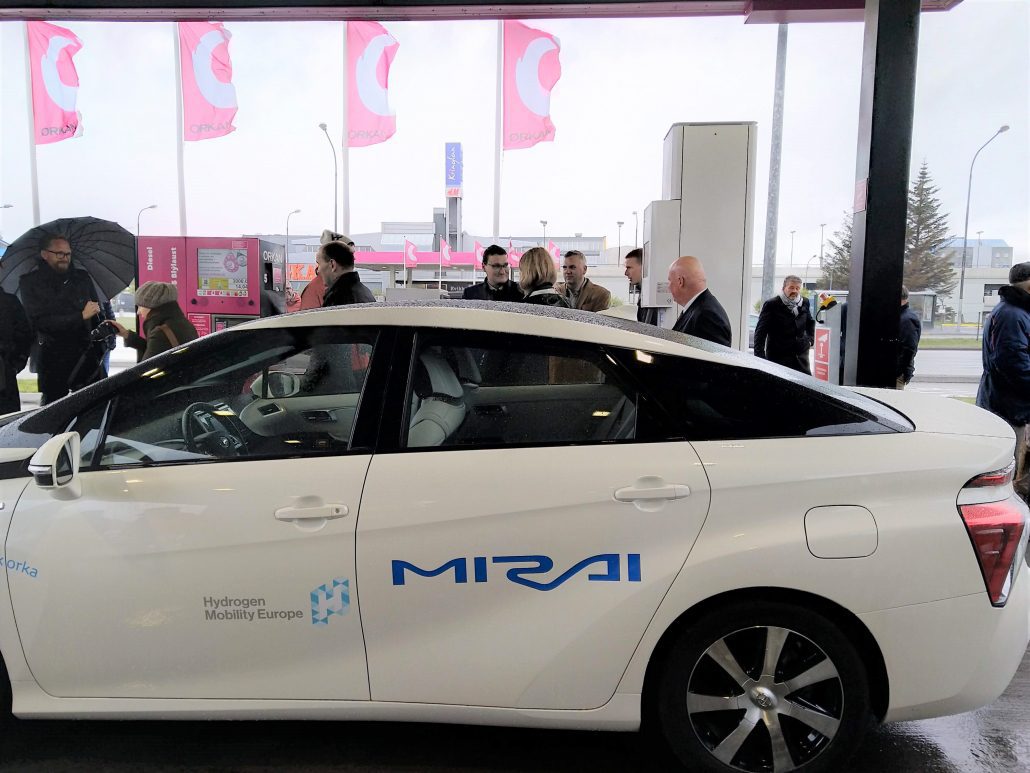Icelandic New Energy has launched 2030 vision for hydrogen in Iceland

Iceland’s first multifuel station opened in May 2019, offering electric charging, hydrogen and methane under the same canopy.
Press release
25 June 2020
Hydrogen could play a vital role in decarbonizing Iceland
For over two decades Iceland has been viewing the role of H2 in its strategy to decarbonize its fuel consumption. The transport sector, including maritime activities, is responsible for a large share GHG emissions in Iceland. The Government of Iceland has already implemented various incentives to stimulate the adoption of zero-emission vehicles and the country is in second place when it comes to deployment of zero-emission vehicles, second to Norway globally.
Even with such great results, specifically in the smaller vehicles segment with battery electric vehicles, it is unlikely that the country can meet its goals for a 29% reduction of GHG emissions set out in the Paris Agreement. The gap is even larger when looking at the national goal of 40% reduction by 2030. This could though change as the Government announced on June 23rd 2020 a 300M€ climate package to be executed over the next 4 years, to reach these goals (a 7-fold increase from a previous climate action funding).
Hydrogen in various forms, including e-fuels such as methanol, ammonia, methane, synthetic diesel, etc., could play a vital role in closing this gap. There are numerous opportunities to stimulate the use of H2 in larger vehicles, trucks, buses/coaches, and alike, and also in high utilization vehicles such as taxis.
Already H2 projects like the H2ME-2* project are in motion in Iceland but in order to reach Iceland’s climate goals, larger projects must be implemented. With power generation almost entirely from renewable energy sources at one of the most competitive prices in the world, Iceland should be the ideal platform for a complete sustainable transport system.
Icelandic New Energy has now established a vision describing the role of H2 in Iceland’s energy transition – a vision until 2030. It is viewed as a living document where new technological developments can be incorporated. It is also the first building block towards a full-scale Roadmap of H2 in Iceland until 2050.
For full document on Iceland’s 2030 hydrogen vision, click here.
Further information:
Jón Björn Skúlason, General Manager of Icelandic New Energy (Íslensk NýOrka):
skulason@newenergy.is – tel. +354 863 6510
*This project has received funding from the Fuel Cells and Hydrogen 2 Joint Undertaking under grant agreement No. 671438 and No 700350. This Joint Undertaking receives support from the European Union’s Horizon 2020 research and innovation programme, Hydrogen Europe Research and Hydrogen Europe.
